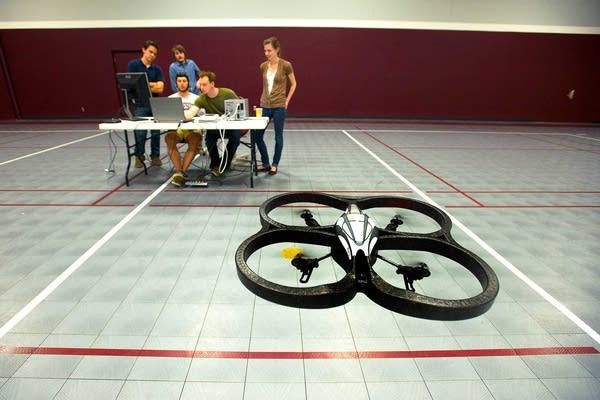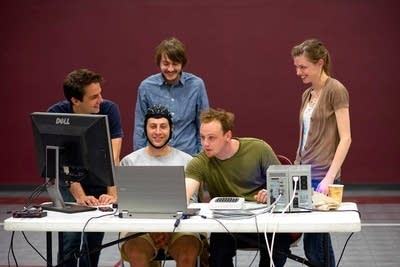Brainwave-controlled helicopter developed at U of M
Go Deeper.
Create an account or log in to save stories.
Like this?
Thanks for liking this story! We have added it to a list of your favorite stories.

University of Minnesota researchers say they've developed a brain-computer interface that allows someone to control a robot using only their mind.
The research is aimed at helping people with disabilities or neurological diseases to regain mobility and independence.
The system uses a special cap, laced with 64 sensors and wires, to detect brain waves and translate them into commands. A computer uses those commands to control a small drone helicopter in a demonstration project.
"The big difference is that we're moving this into the real world," said Karl LeFleur, one of the people working on the system at the College of Science and Engineering.
"People have done a lot of research with computers and spellers and we even have a system that's older that's a virtual helicopter that they fly around," LaFleur said. "But the big thing with our research is that they're moving through all three dimensions, they're moving forward. They've moving left, down, up right. And that really adds a whole degree of freedom to what they can explore."
Here's a video from the university:
Turn Up Your Support
MPR News helps you turn down the noise and build shared understanding. Turn up your support for this public resource and keep trusted journalism accessible to all.
Dear reader,
Political debates with family or friends can get heated. But what if there was a way to handle them better?
You can learn how to have civil political conversations with our new e-book!
Download our free e-book, Talking Sense: Have Hard Political Conversations, Better, and learn how to talk without the tension.






